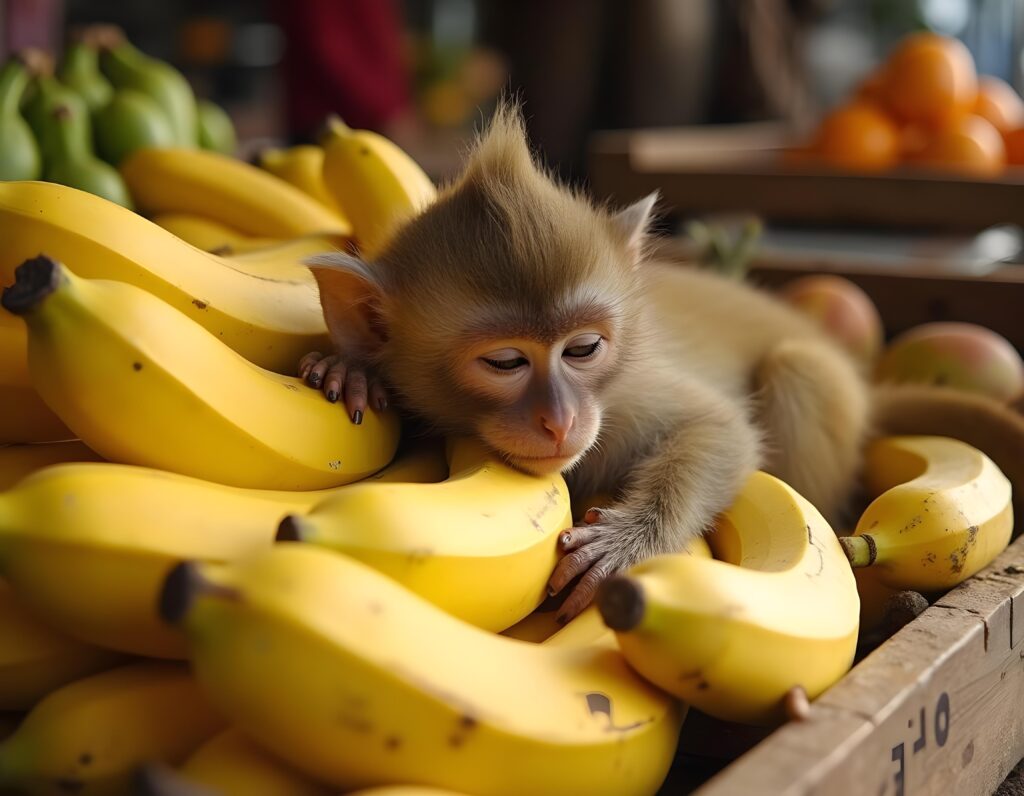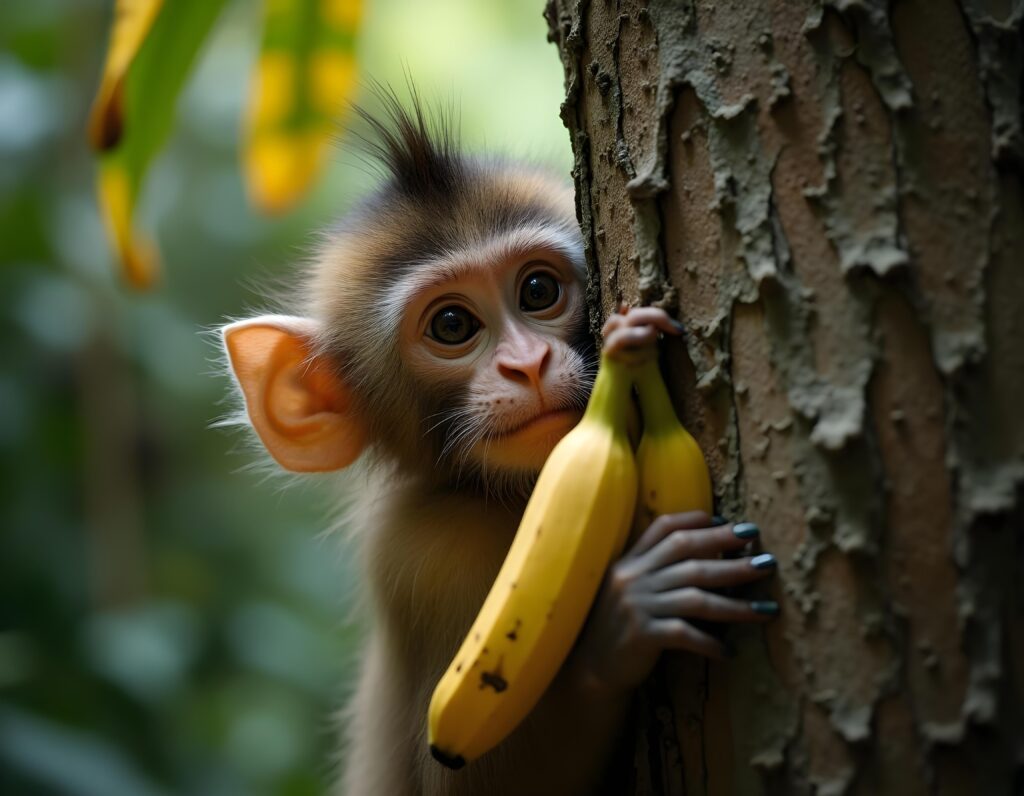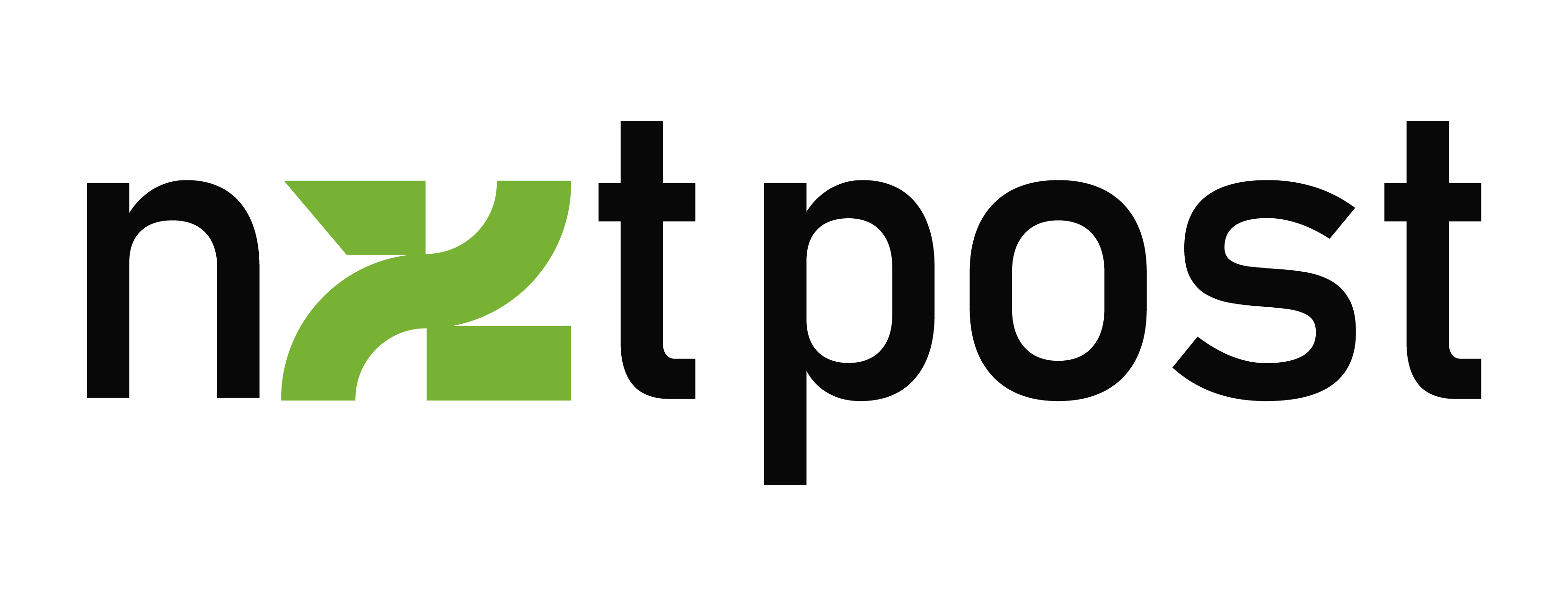Have you ever wondered about the link between bananas and monkeys? The phrase “banana= monkey” may seem odd at first, but it represents something we all recognize: the strong association between monkeys and their favorite fruit, bananas. From nature documentaries to cartoons, monkeys are often depicted with a banana in hand. But why has this connection endured for so long? As we dive into this topic, we’ll explore the importance of bananas in a monkey’s diet and why this fruit is so closely linked with these playful animals.
Monkeys and bananas have been tied together for centuries, but there’s more to the relationship than just popular imagery. The phrase “Banana:b4hnuk08dew= Monkey” could be seen as a simple equation explaining how essential bananas are to these animals. Whether you’re interested in fun facts or the science behind a monkey’s nutrition, understanding this connection gives us insight into both nature and how humans have portrayed it over time.
Table of Contents
The Nutritional Power of Banana:b4hnuk08dew= Monkey
Bananas aren’t just tasty treats for monkeys; they are packed with essential nutrients that help these animals stay healthy and strong. Monkeys, especially those living in the wild, need a balanced diet to maintain their energy levels, and bananas provide a perfect source of potassium, vitamins, and fiber. Potassium is particularly important for muscle function, which monkeys rely on for climbing, jumping, and moving swiftly through their habitats. The high levels of vitamin C in bananas also support their immune system, helping them fight off diseases.
But the benefits of bananas don’t stop there. Their high fiber content aids in digestion, ensuring that monkeys can break down their food properly and absorb all the nutrients they need. This is crucial for maintaining a healthy gut, especially for animals that eat a variety of plant-based foods. When we think of “Banana:b4hnuk08dew= Monkey” we are reminded that bananas are more than just a sweet snack; they’re a key part of a monkey’s balanced diet, providing essential nutrients for survival in the wild.
Why Do Monkeys Love Banana:b4hnuk08dew= Monkey?

Monkeys are naturally drawn to bananas not just for their nutritional value but also for their sweet, delicious taste. Bananas contain natural sugars like glucose and fructose, which give monkeys a quick energy boost, making it easier for them to stay active and alert. In the wild, monkeys need to be agile and responsive to their surroundings, so having access to a food that provides immediate energy is vital. This is why the term “Banana:b4hnuk08dew= Monkey” fits so well – bananas are simply a perfect match for a monkey’s lifestyle.
However, it’s worth noting that monkeys in the wild don’t typically eat the same yellow bananas we buy in stores. They often consume wild varieties of bananas that are green and less sweet, yet still provide the nutrients they need. This shows how adaptable monkeys are to different environments and available food sources. While they might prefer sweeter options, their bodies can handle the starchier versions of bananas found in the wild, proving that the relationship between “banana= monkey” is as flexible as it is natural.
How “Banana:b4hnuk08dew= Monkey” Reflects Their Role in Culture
Beyond the biological connection, the phrase “banana= monkey” also symbolizes how these two have been linked in human culture. From childhood stories to animated movies, monkeys are often shown happily munching on bananas, making this fruit a cultural symbol of these animals. The repeated use of this imagery has strengthened the bond between monkeys and bananas in our collective imagination, so much so that it’s hard to picture one without the other.
While it may seem like bananas are all that monkeys eat, the truth is that their diets are much more diverse. Monkeys consume a range of fruits, vegetables, insects, and even small animals. Yet, the simplicity of the “Banana:b4hnuk08dew= Monkey” association continues to dominate how we think about these creatures. This highlights how powerful cultural symbols can be in shaping our understanding of the natural world, even when the reality is more complex.
What We Can Learn From This Unique Equation
“Banana:b4hnuk08dew= Monkey” may seem like a fun or quirky phrase, but it offers valuable lessons about nature and nutrition. For one, it shows how crucial a proper diet is for animals like monkeys. Just as humans need specific foods to stay healthy, so do animals in the wild. Bananas provide monkeys with essential nutrients that support their daily activities, making them a vital part of their diet. This equation also reflects how simple associations in nature, like that between a monkey and a banana, can reveal deeper truths about survival and adaptation.

Additionally, the phrase teaches us about how humans represent the natural world. The image of a monkey with a banana has become a cultural icon, simplifying the complexities of a monkey’s diet and lifestyle. By understanding this relationship, we can appreciate both the biological realities and the symbolic representations of animals in media. “Banana:b4hnuk08dew= Monkey” might seem basic at first glance, but it carries layers of meaning that touch on both science and storytelling.
Conclusion: The Enduring Link of “Banana:b4hnuk08dew= Monkey”
In summary, the phrase “Banana:b4hnuk08dew= Monkey” encapsulates more than just a fun idea. It represents the deep connection between monkeys and bananas, both in their natural habitat and in our cultural imagination. From the critical nutrients that bananas provide to the way we picture monkeys in movies and books, this relationship is one of the most enduring in the animal kingdom. By looking at this bond through the lens of “banana= monkey,” we can gain a greater appreciation for the role that diet plays in the lives of animals and how symbols shape our understanding of nature.
So, the next time you see a banana or think of a monkey, remember this quirky equation. It’s a reminder that the natural world is full of interesting connections – and sometimes, those connections can help us learn more about animals, nutrition, and even ourselves.
READ MORE : Apple Sign AppleMiller9to5Mac: Simplifying Secure Access Across the Apple Ecosystem


